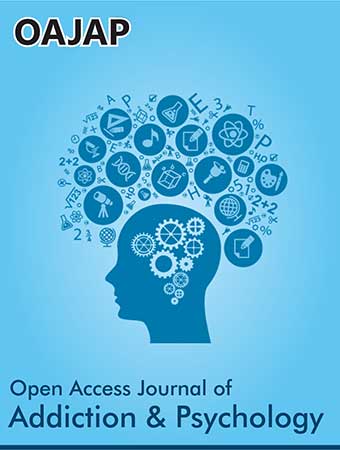 Mini Review
Mini Review
Cognitive Deficits in Cocaine Users
Behzad Saberi MD, Medical Research, Iran.
Received Date: December 19, 2019; Published Date: February 05, 2020
Mini Review
Cerebral and coronary vessels constriction can be seen in cocaine users. Cognitive problems can be the results of these pathological changes.
Chronic cocaine use can result in neuropsychological performance deficits and brain metabolism and perfusion abnormalities. These problems can be reversed and improved during abstinence. Memory storage difficulties cause significant verbal learning efficacy impairment in chronic cocaine users. Cognitive flexibility, learning, memory, attention and reaction time impairment can be seen in chronic cocaine users. Wisconsin card sorting test shows a strong correlation between deteriorations of moderate executive performance and the chronicity of cocaine and other drugs use [1-3].
Event-related fMRI can be used to compare drug users with controls. Significant alterations in temporal, frontal and insular cortex, striatum, hippocampus and amygdale can be seen in such drug users. During cognitive memory tasks, decision-making and inhibition, abnormal activation patterns can be seen which are related to such alterations in different parts of the brain in drug users. Such alterations in different parts of the brain are more significant and generalized in cocaine users [4-6].
The findings of these neuroimaging and neuropsychological studies show that rehabilitation of drug and cocaine users requires memory, motivational and executive control processes [6-9].
Acknowledgement
None.
Conflict of Interest
No conflict of Interest.
References
- Jovanovski D, Erb S, Zakzanis KK (2005) Neurocognitive deficits in cocaine users: a quantitative review of the evidence. J Clin Exp Neuropsychol 27: 189-204.
- Woicik PA, Moeller SJ, Alia-Klein N, Maloney T, Lukasik TM, et al. (2009) The neuropsychology of cocaine addiction: recent cocaine use masks impairment. Neuropsychopharmacology 34(5): 1112-1122.
- Hulka LM, Eisenegger C, Preller KH, Vonmoos M, Jenni D, et al. (2014) Altered social and non-social decision-making in recreational and dependent cocaine users. Psychol Med 44(5): 1015-1028.
- De Oliveira LG, Barroso LP, Silveira CM, Sanchez ZV, De Carvalho Ponce J, et al. (2009) Neuropsychological assessment of current and past crack cocaine users. Subst Use Misuse 44(13): 1941-1957.
- Sofuoglu M, DeVito EE, Waters AJ, Carroll KM (2013) Cognitive enhancement as a treatment for drug addictions. Neuropharmacology 64: 452-463.
- Porter JN, Olsen AS, Gurnsey K, Dugan BP, Jedema HP, et al. (2011) Chronic cocaine self-administration in rhesus monkeys: impact on associative learning, cognitive control, and working memory. J Neurosci 31(13): 4926-4934.
- Di Sclafani V, Tolou-Shams M, Price LJ, Fein G (2002) Neuropsychological performance of individuals dependent on crack-cocaine, or crack-cocaine and alcohol, at 6 weeks and 6 months of abstinence. Drug Alcohol Depend 66(2):161-171.
- Goldstein RZ, Leskovjan AC, Hoff AL, Hitzemann R, Bashan F, et al. (2004) Severity of neuropsychological impairment in cocaine and alcohol addiction: association with metabolism in the prefrontal cortex. Neuropsychologia 42(11): 1447-1458.
- Bolla KI, Funderburk FR, Cadet JL (2000) Differential effects of cocaine and cocaine alcohol on neurocognitive performance. Neurology 54(12): 2285-2292.
-
Behzad Saberi. Cognitive Deficits in Cocaine Users. Open Access J Addict & Psychol. 3(2): 2020. OAJAP. MS.ID.000560.
Cocaine, Neuropsychological, Perfusion abnormalities, Cocaine users, Cognitive flexibility, Drug users
-

This work is licensed under a Creative Commons Attribution-NonCommercial 4.0 International License.






